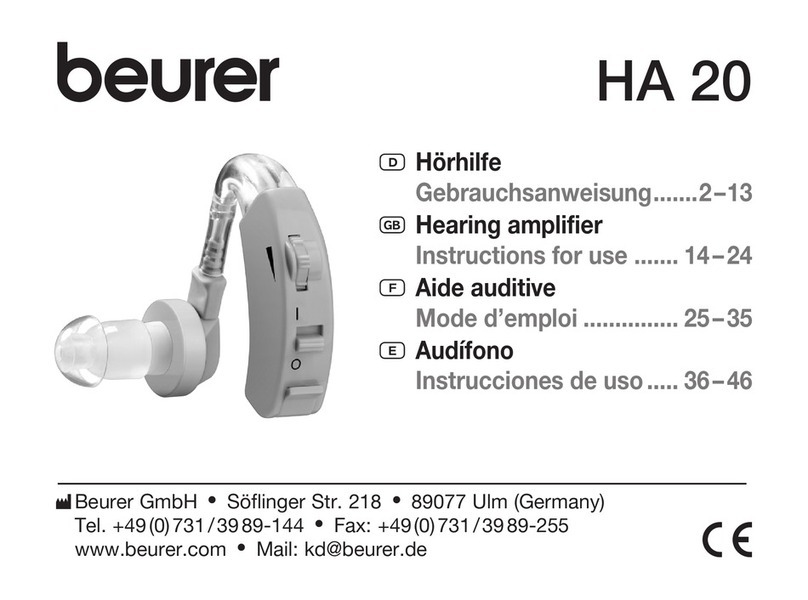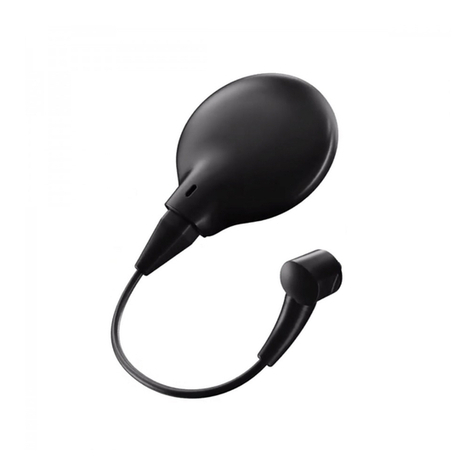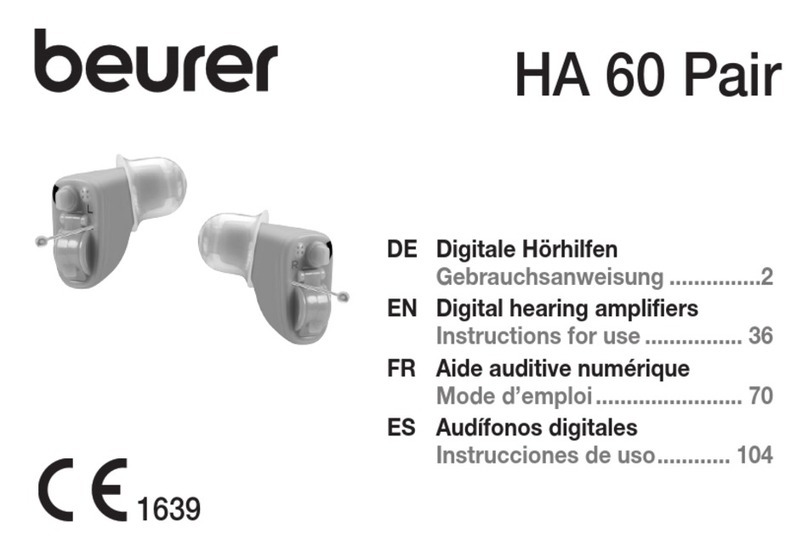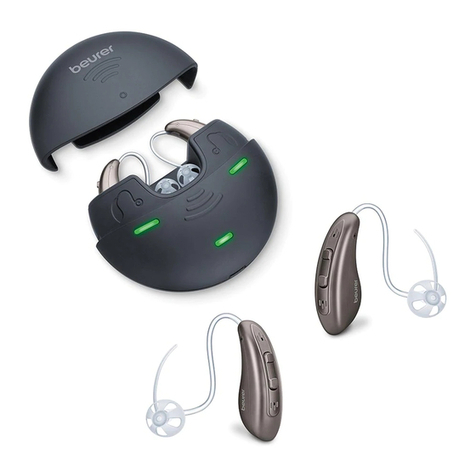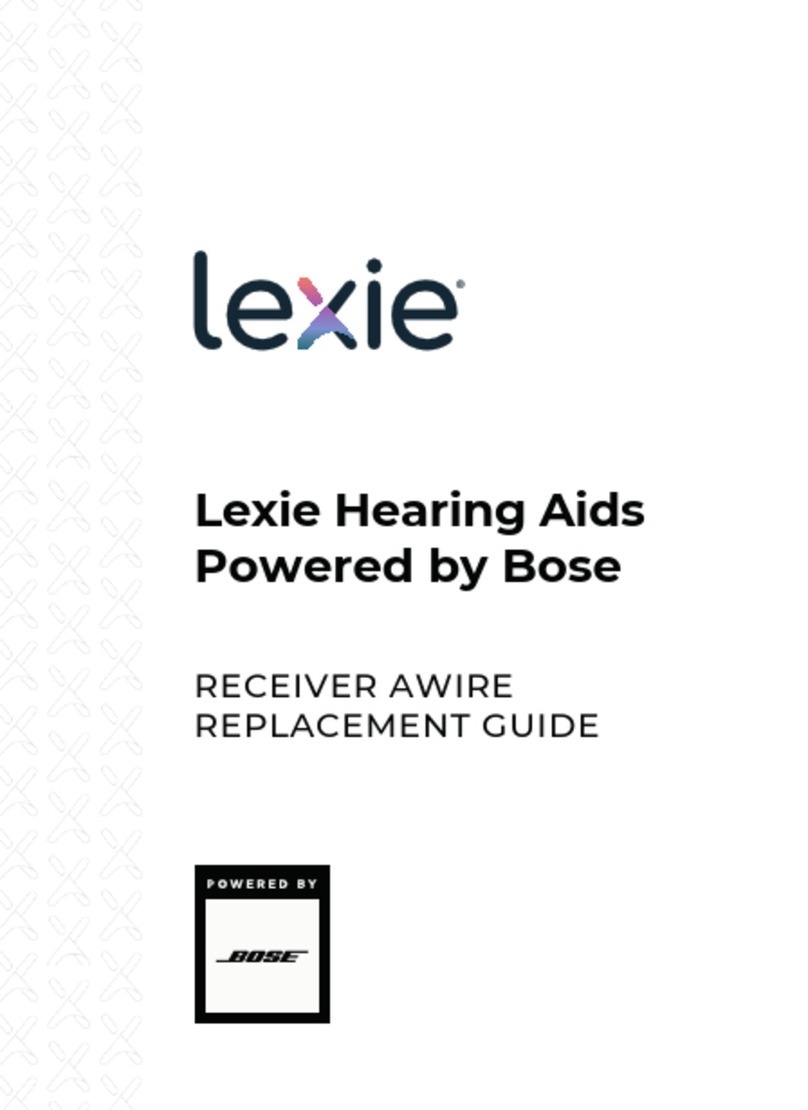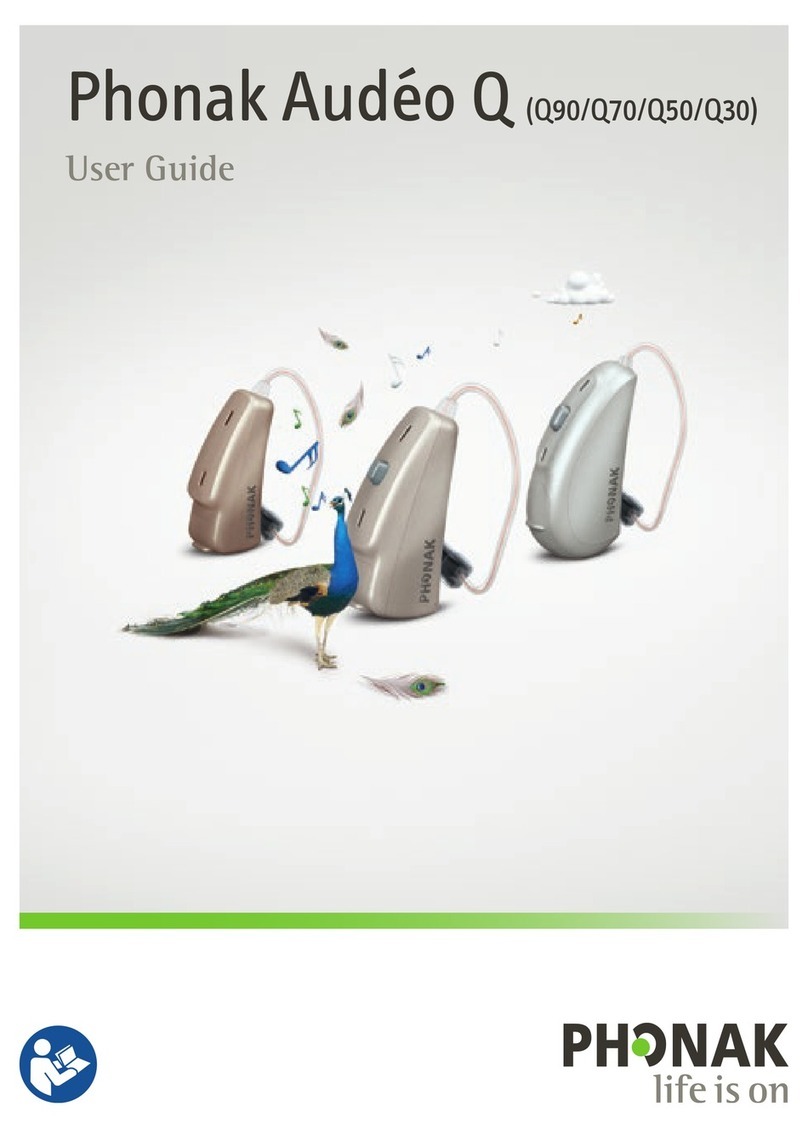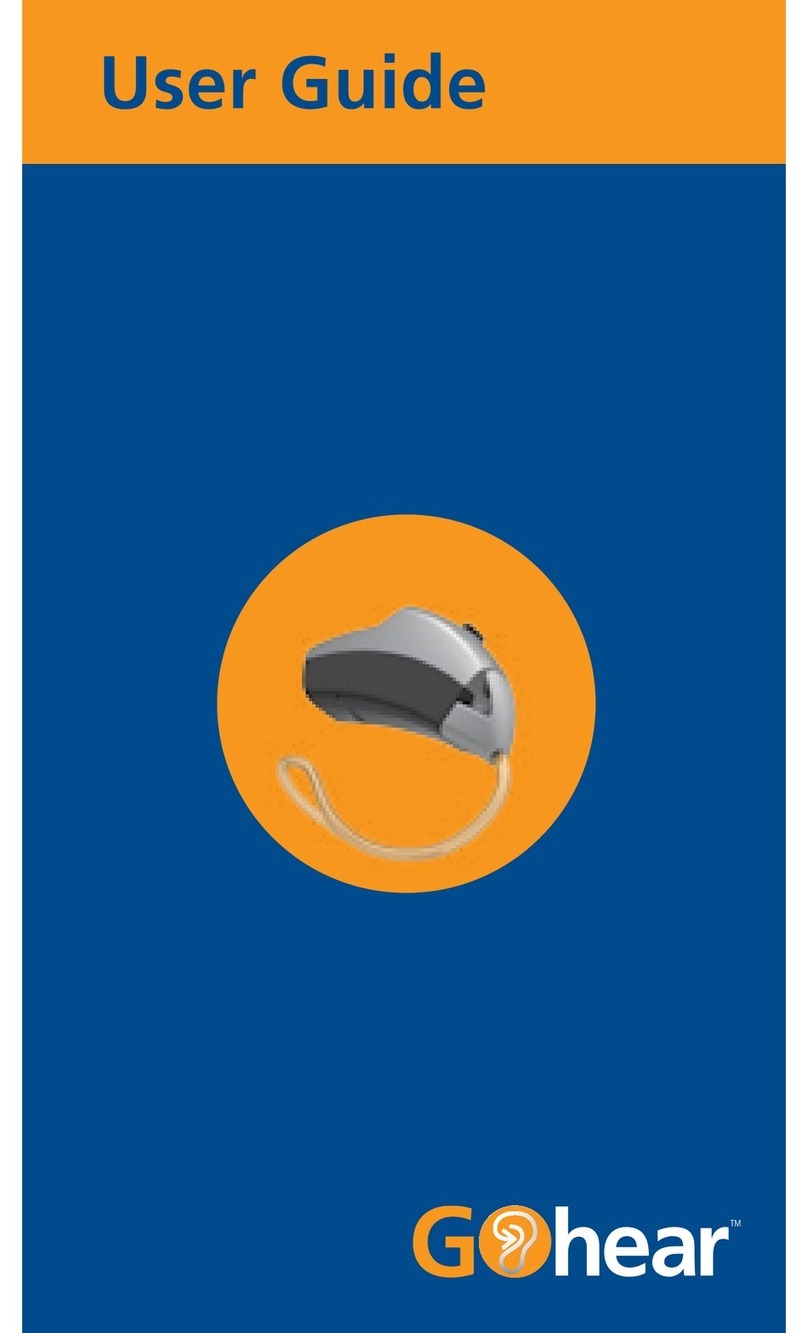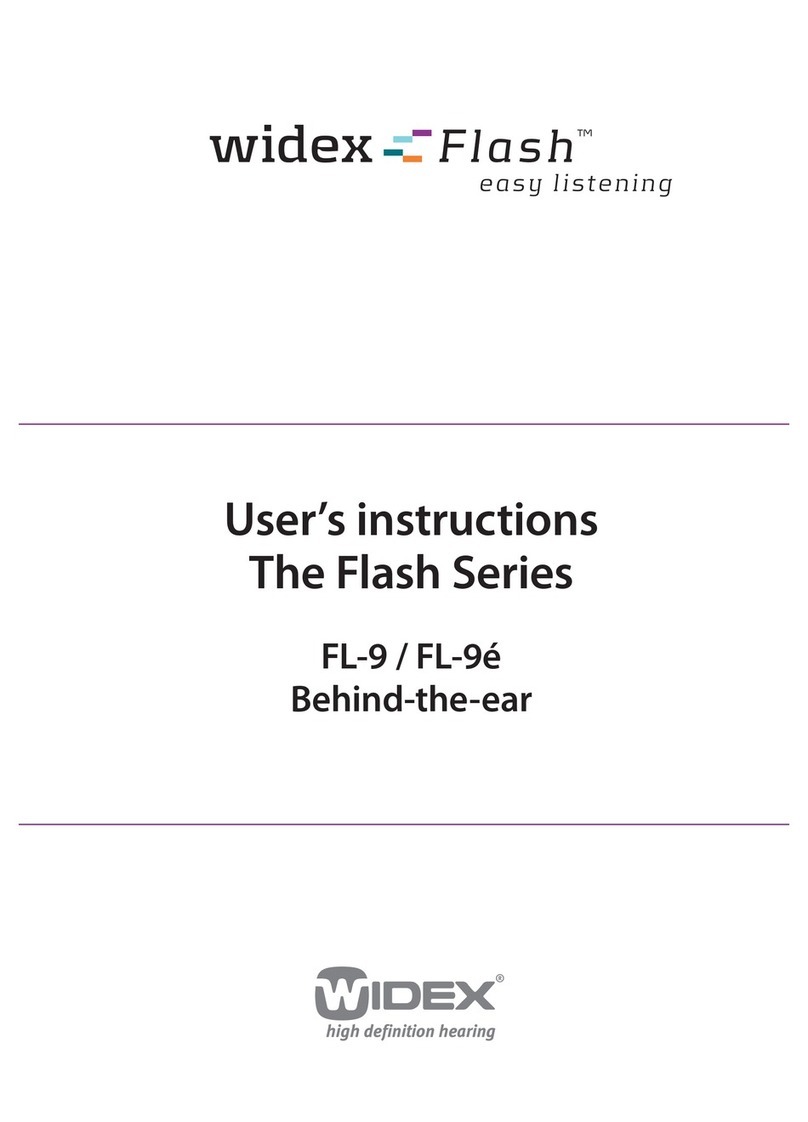
28
•
Do NOT use the hearing amplifier if you are suffering from an inflammation of the middle ear
or ear canal.
•
If you feel unwell or experience pain when wearing the hearing amplifier, stop using it imme-
diately and contact your doctor.
•
If your ear becomes inflamed or your skin irritated, or if you experience an increased accu-
mulation of earwax when wearing the hearing amplifier, stop using it immediately and con-
tact your doctor.
•
Stop using the hearing amplifier and seek medical attention if the following occurs:
- Rash or eczema on areas of skin that come into contact with the hearing amplifier. (The
hearing amplifier is made from a material that is kind to the skin. In rare cases, however, an
allergic reaction may occur that appears in the form of eczema.)
- Use of the hearing amplifier results in discharge from the ear and/or necessitates ear treat-
ment.
- Sudden, significant decrease in hearing ability.
•
If parts of the hearing amplifier become stuck in the ear, seek medical attention immediately.
Do not attempt to remove the parts yourself.
•
Start with the volume at a low setting and increase it gradually once you have become ac-
customed to the hearing amplifier.
•
Do NOT set the volume too high, as this may cause further damage to your hearing over an
extended period of time.
•
Do NOT lend your hearing amplifier to others or use others’ hearing amplifier, as there is a
risk of hearing damage and infection if you do so.
•
Do NOT pass on your hearing amplifier for use by other persons. The use of a hearing ampli-
fier that was designed for someone else may cause hearing damage.
•
The hearing amplifier is NOT suitable for use by small children below the age of 36 months.
•
It is particularly difficult to diagnose hearing problems in children. Children should only be
provided with a hearing amplifier following a thorough examination by an ENT specialist.
•
Keep the hearing amplifier, the accessories and the batteries away from children, as there is
a risk of injury and choking.



